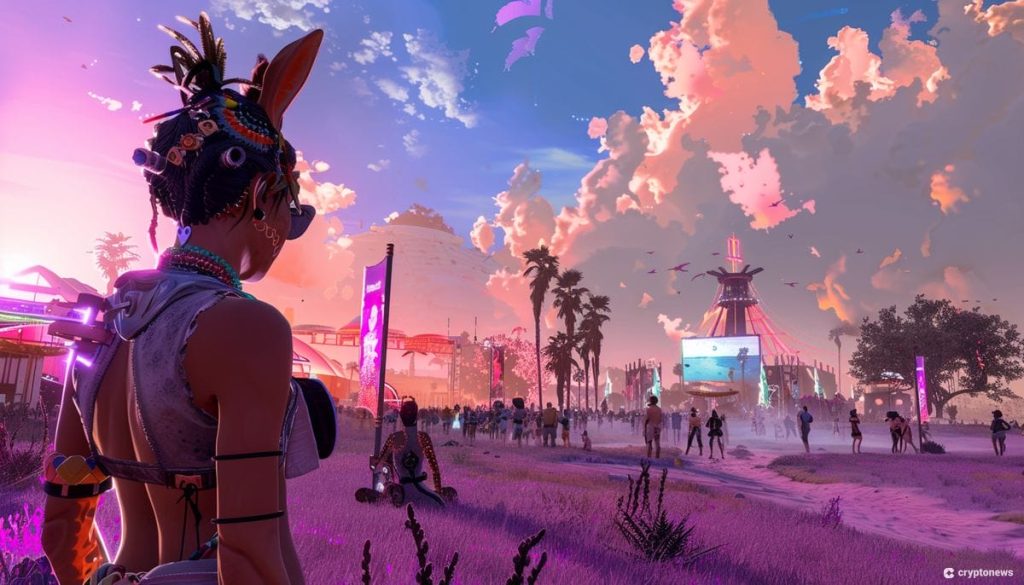The crypto bull market has led to a resurgence in interest in non-fungible tokens (NFTs), with the NFT sector experiencing a 50% surge in trading volume for the first quarter of this year, generating $3.9 billion in revenue. Web3 quests, interactive games that blend gaming elements with digital assets, are gaining traction at events, such as Coachella. These quests allow users to earn rewards in the form of NFTs and token points called “XP” by completing challenges both in-person and virtually. Coachella Quests, powered by smart contract platform Avalanche, aims to bridge the gap between the digital and physical worlds by providing fans with a unique festival experience.
Web3 quests are also being embraced by crypto natives, with games like Crypto: The Game offering daily challenges inspired by popular survival-themed shows like Survivor and The Hunger Games. These challenges range from arcade games to scavenger hunts and allow players to earn rewards in the form of cryptocurrency. The success of the first season of Crypto: The Game attracted 410 players, with one player winning the grand prize pot of 41 ETH. With Season 2 set to begin on April 8, players will have the opportunity to compete in new challenges powered by Coinbase’s Ethereum Layer-2 platform Base.
While Web3 quests may enhance fan engagement, user data is not collected during these events. The incorporation of Web3 quests at major events like Coachella allows organizers to drive engagement while only having access to on-chain data from NFTs, thereby protecting users’ personal information. For instance, during Season 1 of Crypto: The Game, players were identified only by their social media X handles. Season 2 will allow for anonymous play through an NFT minting mechanism, creating a dynamic in-game economy that can be utilized by spectators and former players.
Although quests are becoming a popular tool to drive engagement at events, incorporating them can be challenging, particularly for non-crypto natives. Unlock Protocol’s Valentina Lauria noted that while using tokens as rewards tends to drive engagement, making these tools user-friendly for newcomers while leveraging Web3 technology remains a challenge. Chris Castiglione, Co-founder of Web3 events platform Console, believes that mainstream adoption of NFTs does not necessarily require the use of the term “NFT,” as the technology becomes more integrated into everyday apps. Coachella Quests aims to appeal to a mainstream audience by abstracting away the complexities of Web3 technology and focusing on creating a fun and engaging experience for fans.
Coachella has also expanded its Web3 footprint by partnering with NFT marketplace OpenSea to offer fans non-fungible token keepsakes. These “Coachella Keepsakes” come with festival tickets and exclusive onsite and online benefits for fans. OpenSea CEO Devin Finzer stated that the collaboration with Coachella is ongoing, with plans for additional offerings that leverage NFT technology to enhance ticketing, festival access, and music fandom. As Coachella continues to embrace Web3 technology and NFTs, it aims to provide fans with innovative ways to engage with the festival experience through digital assets and rewards.


